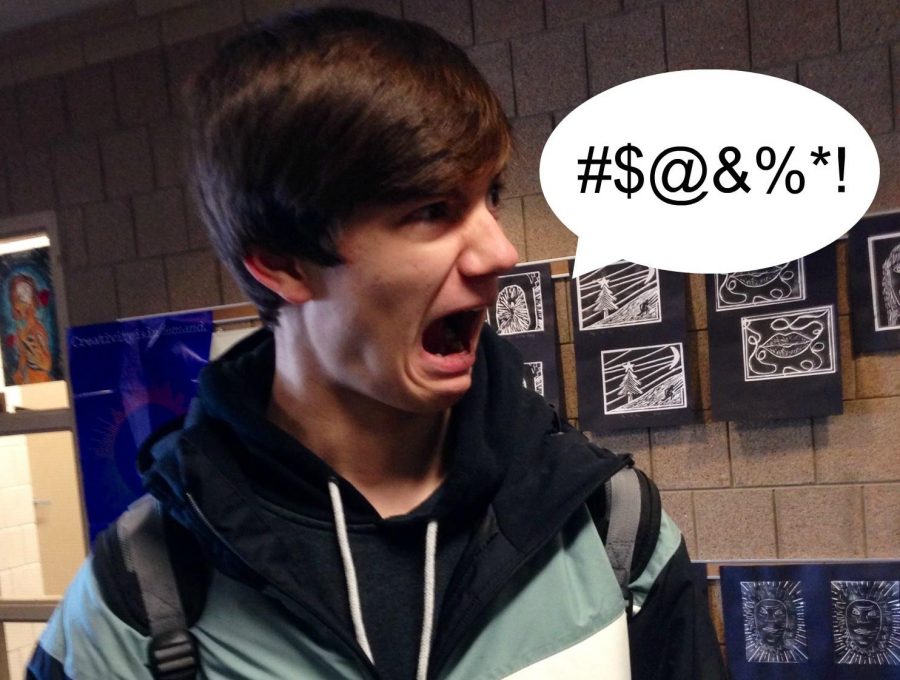Swearing proven to relieve pain
Teachers believe swearing in schools has greatly increased over the last few years. Although originally used just to “seem cool”, studies now show that swearing actually has the ability to relieve pain. “The words don’t have as much power when they’re overused,” said Kramer. “They’re desensitized, meaningless.”
December 11, 2013
Walking through the halls, it is nearly impossible to make it through the six-minute passing time without hearing one. Sometimes it is an exclamation. Other times, it is part of name calling or an expression of anger. Whatever the reason, many students salt and pepper their conversations with swear words, ranging from the simple “d-word” to the stronger “f-bomb”.
Swearing may be just words to some, but swear words also have a deeper meaning than just an expression of anger. Once, swearing was punishable with a bar of soap to the mouth. Now, maybe the perpetrator will get a gentle slap on the wrist.
Philosophy teacher Michael Weiss’ class recently discussed whether cussing is acceptable or not. Over the years, he has seen a change in student’s vocabulary.
“I see more people swearing, even in front of me, and especially in the halls,” said Weiss. “I think most kids try to refrain from swearing around teachers, and leaving it in the halls and not class. They look at the context of the situation to and do it when it’s more appropriate.”
Many people claim that teens swear because they want to appear cool or more like an adult. However, studies have shown that it is something people learn at a young age. Time reports that most toddlers know one swear word. Junior Autumn Brown thinks that students do not swear for the sake of swearing.
“A lot of people do it to fit in or maybe because their parents swear and it’s normal to them,” said Brown.
It was also found that people swear more than thought. About 0.7 percent of the words used in conversation on average are swear words, equal to that of plural pronouns, according to Time. The high end of that range is three percent. Senior Nathan Kramer sees this as a problem.
“The words don’t have as much power when they’re overused,” said Kramer. “They’re desensitized, meaningless.”
Senior Tayler Aarness claims to know a swear word when he hears one, but he himself does not indulge in their use.
“I don’t swear at school. I only ever do it by myself,” said Aarness. “Like when I’m alone. I wouldn’t even do it in conversation with a friend. And I’d never swear at someone.”
A study done by NeuroReport found that swearing is more than just saying words. Swearing can relieve pain actually. And that is exactly when Aarness uses them.
“I swear whenever I forget something or when I get hurt,” said Aarness.
Swearing is not a trend. Humans have created and used swear words since language was invented, and will probably continue to do so, even in the halls of the high school.







